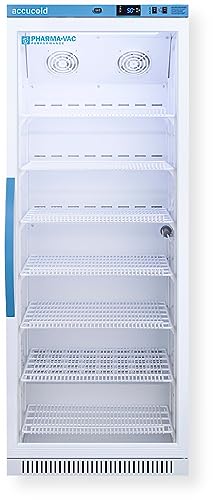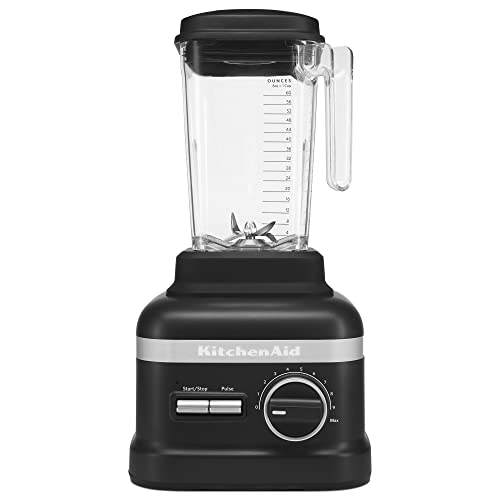



The Pfizer Covid vaccine has been a game-changer in the fight against the global pandemic. Developed by the pharmaceutical giant Pfizer in collaboration with BioNTech, this vaccine has shown remarkable efficacy in preventing severe illness and reducing the spread of the virus.
One of the key concerns with the distribution of the Pfizer vaccine is its storage requirements. Unlike many other vaccines, the Pfizer vaccine needs to be stored at ultra-cold temperatures to maintain its effectiveness. Specifically, it needs to be stored at -70 degrees Celsius (-94 degrees Fahrenheit) until it is ready to be administered.
This ultra-cold storage requirement poses significant logistical challenges for countries and healthcare systems worldwide. Specialized freezers are required to store the vaccine, and transportation to remote areas or regions with limited infrastructure becomes more complicated. However, Pfizer has developed special thermal shippers that can maintain the required temperature for up to 10 days, using dry ice.
Why Does the Pfizer Covid Vaccine Need Refrigeration?
The need for refrigeration of the Pfizer Covid vaccine is primarily due to the nature of the vaccine components and their stability. Vaccines, in general, contain biological materials that are sensitive to temperature fluctuations. The Pfizer vaccine, specifically, is an mRNA-based vaccine that uses a fragile piece of genetic material known as messenger RNA (mRNA) to instruct cells in the body to produce a harmless piece of the SARS-CoV-2 spike protein.
Maintaining the stability of mRNA is crucial for the effectiveness of the Pfizer vaccine. Due to its delicate nature, mRNA can degrade quickly if exposed to high temperatures. Refrigeration helps in preserving the integrity of the mRNA and ensures that it remains intact until administration.
Moreover, the lipid nanoparticle formulation used to encapsulate the mRNA is also prone to degradation at higher temperatures. Lipid nanoparticles are tiny particles that protect the mRNA and help deliver it to cells. Keeping these nanoparticles cold prevents any potential breakdown or loss of their structural integrity.
In addition to temperature considerations during manufacturing, transportation, and storage, the need for ultra-cold storage conditions (-70 to -80 degrees Celsius) for the Pfizer vaccine is due to the potential presence of stabilizers. These stabilizers are included in the vaccine formulation to enhance its shelf-life and prevent degradation. Low temperatures help maintain the stability of these stabilizers, ensuring the efficacy of the vaccine.
It is worth mentioning that the ultra-cold storage requirement of the Pfizer vaccine poses logistical challenges, as most healthcare facilities and distribution centers are not equipped with the necessary refrigeration infrastructure. However, efforts are being made to establish cold-chain networks and transportation systems to ensure the proper storage and distribution of the Pfizer vaccine.
In conclusion, the need for refrigeration of the Pfizer Covid vaccine is essential to preserve the integrity of its fragile mRNA components and lipid nanoparticle formulation. Maintaining low temperatures ensures the stability of the vaccine and enhances its effectiveness in protecting against COVID-19.
Understanding the Importance of Proper Storage
Proper storage of the Pfizer COVID-19 vaccine plays a crucial role in maintaining its effectiveness and ensuring its safety. The vaccine needs to be stored at ultra-low temperatures to preserve its delicate composition and potency. The importance of following the storage guidelines cannot be overstated, as improper storage can render the vaccine useless and pose risks to patients.
Preserving the Vaccine’s Effectiveness
The Pfizer COVID-19 vaccine relies on mRNA technology, which is highly sensitive to temperature fluctuations. To maintain its stability and effectiveness, the vaccine must be stored at temperatures between -80°C and -60°C (-112°F and -76°F). This requirement is necessary because the mRNA molecules that make up the vaccine can degrade rapidly when exposed to higher temperatures.
Once thawed, the vaccine has a limited shelf life before it becomes ineffective. It can be stored in a refrigerator between 2°C and 8°C (35°F and 46°F) for up to five days. However, it is essential to avoid freezing the vaccine again once it has been thawed, as this can compromise its potency. Thawed vials should not be refrozen under any circumstances, as it can lead to a decrease in protection against COVID-19.
Ensuring Patient Safety
The proper storage of the Pfizer vaccine is not only vital for preserving its effectiveness but also for ensuring patient safety. When exposed to incorrect temperatures, the vaccine’s composition can be altered, impacting its safety profile. Additionally, administering an ineffective vaccine to individuals can give a false sense of protection against COVID-19, putting them at risk of contracting the virus.
Proper storage practices involve using specialized ultra-low temperature freezers, refrigeration units, or thermal shipping containers equipped with temperature monitoring devices. These measures help maintain the required temperature range and ensure that the vaccine remains potent and safe until it is administered to patients.
| Temperature | Storage Duration |
|---|---|
| -80°C to -60°C (-112°F and -76°F) | Long-term storage |
| 2°C to 8°C (35°F and 46°F) | Up to five days after thawing |
By understanding the importance of proper storage and following the guidelines set by health authorities, we can ensure that the Pfizer COVID-19 vaccine maintains its effectiveness and continues to protect individuals against the virus.
The Science Behind Pfizer Vaccine’s Cold Chain Requirement
The Pfizer COVID-19 vaccine requires a specific temperature range to maintain its efficacy and ensure its safety throughout the distribution process. This requirement is known as the “cold chain”, and it plays a crucial role in preserving the integrity of the vaccine.
The Pfizer vaccine utilizes a messenger RNA (mRNA) technology, which is a novel approach to vaccine development. The vaccine contains mRNA instructions that teach cells in the body how to produce a spike protein found on the surface of the SARS-CoV-2 virus. This spike protein stimulates the immune system to produce an immune response against the virus.
However, mRNA is a fragile molecule that can easily degrade when exposed to certain conditions, such as heat. The Pfizer vaccine’s cold chain requirement helps to maintain the stability of the mRNA and prevent its degradation.
The vaccine needs to be stored and transported at ultra-low temperatures, specifically between -80°C to -60°C (-112°F to -76°F). These extreme temperatures are necessary to preserve the integrity of the mRNA molecules and ensure that they remain intact until they are administered to individuals.
Moreover, the Pfizer vaccine uses a lipid nanoparticle formulation, which helps protect the mRNA and facilitate its delivery into cells. This formulation also requires the cold chain to maintain its stability and effectiveness.
During the distribution process, the vaccine is carefully packed in temperature-controlled containers with dry ice or specialized freezer packs. These containers help maintain the required ultra-low temperatures until the vaccine reaches its destination.
Once the vaccine arrives at vaccination centres or healthcare facilities, it can be stored in standard medical-grade freezers for a short period of time. It can also be stored in a refrigerator for up to five days, but it cannot be refrozen once thawed.
The cold chain requirement for the Pfizer vaccine is essential to ensure that the vaccine remains potent and effective when administered to individuals. By maintaining the specific temperature range, the vaccine’s mRNA molecules and lipid nanoparticle formulation can remain stable, thus allowing the vaccine to provide protection against COVID-19.
Challenges and Solutions in Vaccine Distribution
Efficient and effective vaccine distribution is crucial in controlling the spread of infectious diseases and protecting public health. The distribution process involves numerous challenges that need to be addressed to ensure the timely and safe delivery of vaccines to the intended recipients. The Pfizer Covid vaccine, in particular, presents unique challenges due to its ultra-cold storage requirements.
1. Ultra-Cold Storage Requirements
The Pfizer Covid vaccine requires ultra-cold storage at temperatures of around -70 degrees Celsius (-94 degrees Fahrenheit). Such low temperatures pose logistical challenges as most healthcare facilities and distribution centers are not equipped with freezers capable of maintaining such extreme temperatures. This necessitates the implementation of specialized cold chain transportation and storage solutions.
2. Cold Chain Management
Cold chain management is critical to maintaining the potency and efficacy of vaccines during transportation and storage. Vaccines need to be stored within the recommended temperature range to ensure their effectiveness. Any temperature deviations can lead to reduced vaccine efficacy or complete loss of effectiveness. Vaccines also need to be protected from light, which can degrade the vaccine components. Proper monitoring and temperature control mechanisms need to be in place throughout the cold chain to ensure vaccine integrity.
| Challenge | Solution |
|---|---|
| Limited cold storage infrastructure | Invest in ultra-cold freezers and refrigeration units or partner with facilities that have the necessary infrastructure. |
| Transportation constraints | Utilize specialized cold chain logistics providers equipped with temperature-controlled vehicles and containers. |
| Monitoring temperature deviations | Implement real-time temperature monitoring and alert systems to ensure timely intervention in case of temperature fluctuations. |
| Vaccine wastage | Develop strategies to minimize the wastage of vaccines, such as efficient allocation and distribution planning. |
Overcoming these challenges requires collaboration among various stakeholders involved in vaccine distribution, including pharmaceutical companies, logistics providers, healthcare facilities, and government agencies. By addressing the challenges and implementing robust solutions, the distribution of the Pfizer Covid vaccine, and any other vaccines with specific storage requirements, can be efficiently managed, ensuring widespread vaccination and the control of infectious diseases.
Future Innovations in Covid Vaccine Cold Storage
The storage and transportation of the Pfizer Covid vaccine at ultra-cold temperatures has posed significant logistical challenges. However, researchers and scientists are already exploring future innovations in cold storage technologies to address these issues.
Cryogenic Freezers: One potential solution involves the use of cryogenic freezers, which can maintain extremely low temperatures. These freezers use liquid nitrogen or carbon dioxide to achieve temperatures well below freezing, making them ideal for storing vaccines like the Pfizer one.
Deep Freezing Technologies: Another innovation being explored is the use of deep freezing technologies, which aim to maintain stable and ultra-low temperatures for prolonged periods. These technologies involve the use of advanced insulation methods and specialized refrigeration systems.
Phase Change Materials: Phase change materials are substances that can absorb and release a large amount of thermal energy within a narrow temperature range. By incorporating phase change materials into vaccine storage containers, it is possible to maintain a stable temperature range without relying solely on traditional refrigeration systems.
Smart Monitoring Systems: To ensure the temperature integrity of Covid vaccines during storage and transportation, smart monitoring systems are being developed. These systems use sensors and wireless technology to provide real-time monitoring and alerting, allowing healthcare workers to quickly respond to any temperature deviations.
Improving Existing Infrastructure: Efforts are also being made to improve existing cold storage infrastructure by investing in better insulation, more efficient refrigeration systems, and backup power supply solutions. These improvements will help minimize the risk of temperature excursions and ensure the integrity of Covid vaccines.
In conclusion, the cold storage requirements of the Pfizer Covid vaccine have sparked innovation in the field of vaccine storage and transportation. Cryogenic freezers, deep freezing technologies, phase change materials, smart monitoring systems, and improvements in existing infrastructure all hold promise in ensuring the safe and effective distribution of vaccines during the current pandemic and future health crises.
FAQ
What is the storage temperature for the Pfizer COVID vaccine?
The Pfizer COVID vaccine needs to be stored at ultra-cold temperatures of -70 degrees Celsius.
Why does the Pfizer COVID vaccine need to be stored at such low temperatures?
The Pfizer COVID vaccine contains a fragile molecule called mRNA, which can degrade at higher temperatures. Storing it at ultra-cold temperatures helps to maintain the vaccine’s integrity and effectiveness.










